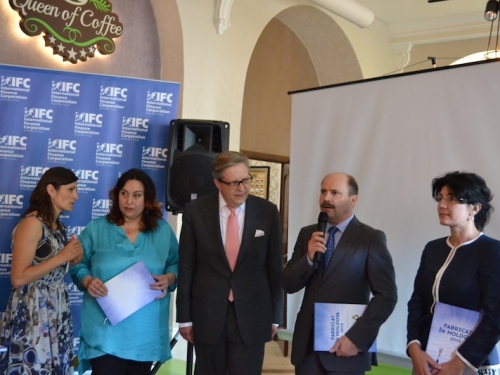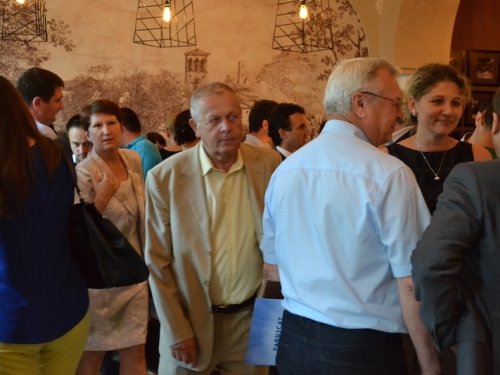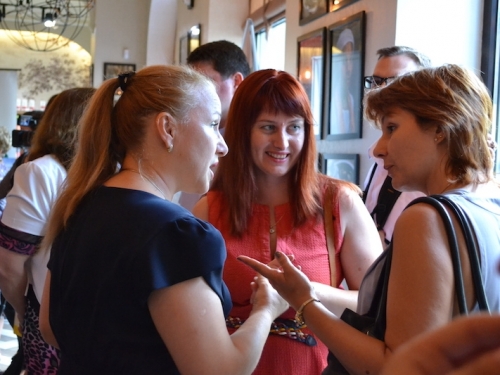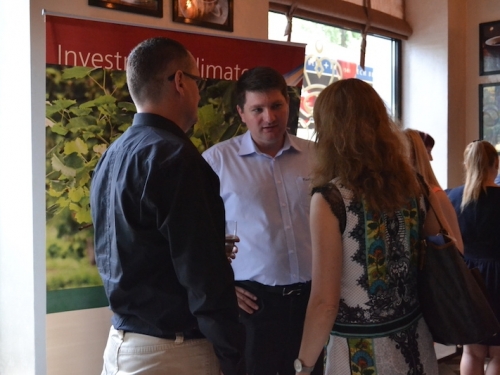Almost 1300 trained companies, 51 seminars, 600 individual consultations, seven business trips in EU countries, attendances at exhibitions and business forums, 180 B2B meetings, form a part of the organized activities meant to consolidate the capacities for fully benefitting from the opportunities opened by the Deep and Comprehensive Free Trade Agreement with EU, developed within the Project “DCFTA. Informing and consolidating the capacities of economic agents”. The Project was financed by the Swedish Government through International Finance Corporation and implemented by the Chamber of Commerce and Industry and European Business Association.
The Project “Deep and Comprehensive Free Trade Agreement. Informing and consolidating the capacities of economic agents” took place in two phases. The first one took place during July-December 2014 and was focused on informing the economic agents who produce fruits and vegetables, and the activities of the second one took place during January-June 2015, have been dedicated to companies from the textile industry and food processing.
“One year after signing the DCFTA, the quota of exports on the EU market in the Moldavian export structure grew by 10 %, this change partially solving the restrictions of export on the traditional markets. The project that we have implemented was in a way a pilot one, which generated both direct and indirect benefits. Economic agents understand now better the challenges of new geo-economic situation. The conclusion though is a simple one, that in order to benefit fully from the DCFTA we must raise the competitiveness, both at quality and cost levels, as well as from the perspective of marketing” mentioned the President of CCI, Valeriu Lazar.
As a result of DCFTA, the exports to EU have risen. In order for the Agreement to fully function, and the economic operators to benefit from its stipulations, the Government is to realize significant reforms, and the business environment to strive to comply, specified the Ambassador of EU, Mr. Pirkka Tapiola, who is also the Honorific President of European Business Association. According to Mr. Tapiola, the European Union will continue to support the private sector of Moldova, and the volume of finances would eventually grow.
The project comprised several components of informing the economic operators through 51 seminars, organized throughout the country with topics relevant to the implementation of the Deep and Comprehensive Free Trade Agreement, among which: rules of access on the EU market, negotiation techniques, international contracting aspects and support in finding partners on the EU market, marketing techniques and conditions for obtaining international certification.
Also, during the project have been organized seven study visits to Baltic Countries, Italy, Romania, Belgium and Netherlands, in which managers of national companies participated at meetings with producers, importers and distributors, B2B meetings, business forums where they had the possibility to identify new partners for intensifying collaboration links.
Source: www.chamber.md




